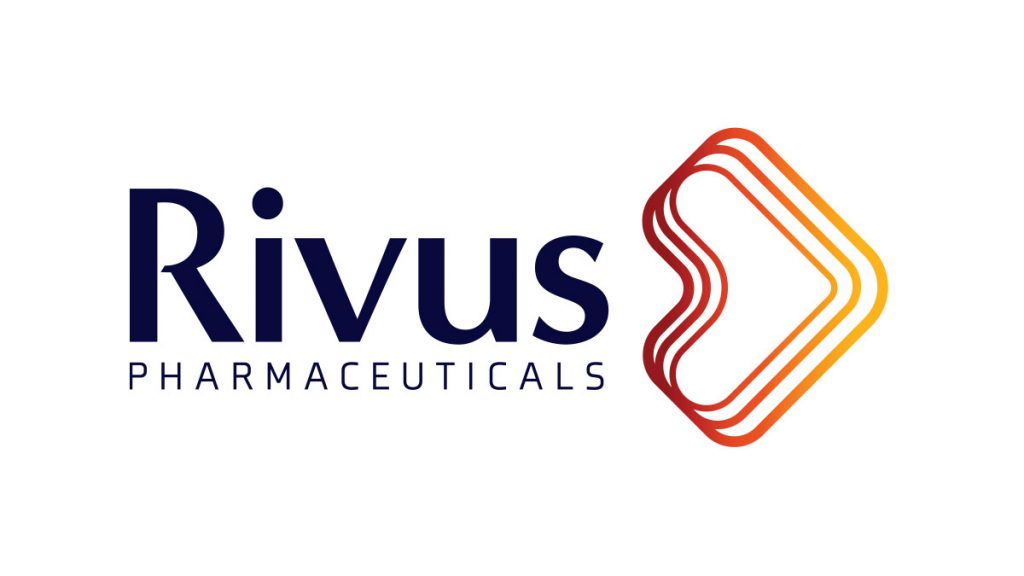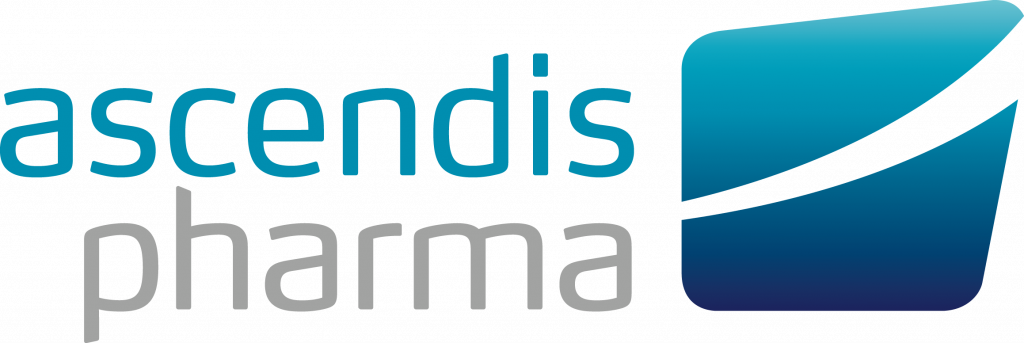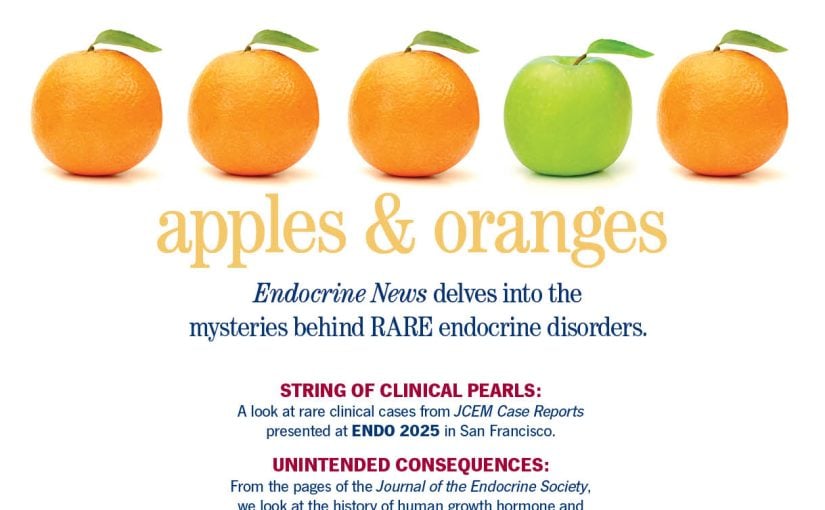An Endocrine News roundup of the week’s pharmaceutical news, breakthroughs, and general information. *
Baseline Characteristics Reported from CAHmelia-203 and CAHmelia-204 Studies in Adult Classic CAH
Spruce Biosciences, Inc., today reported baseline characteristics of patients enrolled in the CAHmelia-203 and CAHmelia-204 clinical studies of tildacerfont for the treatment of adult classic congenital adrenal hyperplasia (CAH).

“The baseline characteristics of patients enrolled in our CAHmelia-203 and CAHmelia-204 studies reinforce our adult CAH program enrichment strategy and underscore the clinical significance of both hyperandrogenemia and hypercortisolemia within this patient population,” says Endocrine Society member and Spruce CEO Javier Szwarcberg, MD, MPH. “In particular, patients in CAHmelia-203, which is assessing the change in androstenedione (A4) from baseline at week 12, enrolled with mean baseline A4 levels nearly six times above the upper limit of normal on a mean baseline daily glucocorticoid (GC) dose of 27 mg hydrocortisone equivalents (HCe).”
“By contrast, patients in CAHmelia-204, which is assessing the absolute change in GC dose from baseline at week 24, enrolled with a mean baseline daily GC dose of 35 mg HCe and suppressed levels of A4,” Szwarcberg continues. “Collectively, we are encouraged by these baseline characteristics and look forward to reporting topline results from CAHmelia-203 in March, followed by CAHmelia-204 in the third quarter.”
CAHmelia Adult Classic CAH Program Baseline Characteristics
| Study Characteristics | CAHmelia-203(N = 96) | CAHmelia-204(N = 98)1 |
| Male/Female(Proportion of Total Subjects) | 47% Male53% Female | 47% Male53% Female |
| Average AgeAge Ranges | 32 Years Old(18 – 65 Years Old) | 33 Years Old(18 – 64 Years Old) |
| Average Baseline Glucocorticoid (GC) Dose2 | 27 mg/day(14 mg/m2/day) | 35 mg/day(19 mg/m2/day) |
| Average Baseline Androstenedione (A4) Level3 | 1,149 ng/dL | 214 ng/dL |
| Body Mass Index (BMI) | 50% Obese(BMI ≥ 30 kg/m2) | 53% Obese(BMI ≥ 30 kg/m2) |
| 1 Patients enrolled as of December 20, 2023. Final enrollment is anticipated to be completed in January 2024 and projected between 98 and 100 patients. | ||
| 2 In hydrocortisone equivalents (HCe) | ||
| 3 Pre-GC dose. | ||
Spruce Biosciences, Inc., is a late-stage biopharmaceutical company focused on developing and commercializing novel therapies for rare endocrine disorders with significant unmet medical need.
Enrollment Completed in Phase 2a HuMAIN Trial of HU6
Rivus Pharmaceuticals Inc., today announced the completion of enrollment in its Phase 2a HuMAIN trial of HU6, an investigational controlled metabolic accelerator (CMA), in patients with the obese phenotype of heart failure with preserved ejection fraction (HFpEF).
Company executives will provide a corporate update with additional details during a presentation at the 42nd Annual J.P. Morgan Healthcare Conference in San Francisco on Monday, January 8.

“We have made significant progress in advancing our HU6 clinical development program, having completed enrollment in our Phase 2a HuMAIN trial in patients with obese HFpEF,” says Jayson Dallas, MD, chief executive officer, Rivus Pharmaceuticals. “A disease-modifying treatment is urgently needed for this at-risk patient population which tends to be older, obese, and less mobile, with multiple metabolic co-morbidities. By increasing metabolism and, thus, significantly reducing adiposity, a key underlying cause of HFpEF, HU6 has the potential to modify the underlying disease progression. We plan to announce topline data in mid-2024 and initiate a Phase 3 trial in 2025.”
In addition to the HuMAIN trial, the company is actively enrolling subjects with obesity and Type 2 diabetes at risk of metabolic dysfunction-associated steatohepatitis (MASH) into the ongoing Phase 2b M-ACCEL trial of HU6. A topline data readout from the M-ACCEL trial is planned for early 2025.
Rivus Pharmaceuticals Inc., is a clinical-stage biopharmaceutical company dedicated to improving cardiometabolic health.
Significant Health and Quality of Life Improvements Achieved in Children with Achondroplasia Treated for One Year with TransCon™ CNP (Navepegritide) at 100 µg/kg/week
On December 20, Ascendis Pharma announced new analyses from the blinded and ongoing open-label extension (OLE) portions of ACcomplisH, the company’s Phase 2 randomized, double-blind, placebo-controlled, dose-escalation trial of TransCon CNP in children ages 2-10 years with achondroplasia. In the trial, all 57 patients have now completed one year of treatment with TransCon CNP (navepegritide) at 100 µg/kg/week, the dose agreed with regulatory agencies for the active arm in the pivotal ApproaCH Trial.

Ascendis analyzed available data for patients who only received TransCon CNP at the 100 µg/kg/week dose in either blinded or OLE part and were treated for one year (n=19), compared to those administered placebo for one year (n=15). Results showed that these TransCon CNP treated patients (data available for 9-16 patients) showed significant improvements in health-related quality of life and disease impacts compared to those receiving placebo (data available for 5-13 patients).
Assessments were performed with the SF-10 and Achondroplasia Child Experience Measure (ACEM), with statistically significant improved outcome in TransCon CNP treated versus placebo for:
- SF-10 Physical Summary (p=0.002, ages 5 years and older)
- ACEM Daily Living Function (p=0.047)
- ACEM Emotional Well-being (p=0.045)
The 46 children switching from placebo or a lower dose of TransCon CNP to the 100 µg/kg/week dose in the OLE demonstrated improved growth after one year of treatment, similar to the growth benefits seen in the 11 children treated with 100 µg/kg/week in the one-year randomized, double-blind period of ACcomplisH.
“These data support our aspirations for TransCon CNP, the first investigational product to go beyond height by improving the signs and symptoms of achondroplasia. We believe that the observed treatment benefits are likely contributing to the continued strong patient retention in our trials,” says Jan Mikkelsen, president and chief executive officer at Ascendis Pharma. “We remain confident that TransCon CNP has the potential to deliver meaningful benefits to children with achondroplasia, and we will explore effects of TransCon CNP in adults with achondroplasia in the years ahead.”
TransCon CNP (navepegritide) is an investigational prodrug of CNP, administered once weekly and designed to provide sustained release of active CNP supporting continuous exposure for the treatment of children with achondroplasia.
Further details of the results will be shared early next year.
*Inclusion in Pharma Fridays does not suggest an endorsement by Endocrine News or the Endocrine Society.

